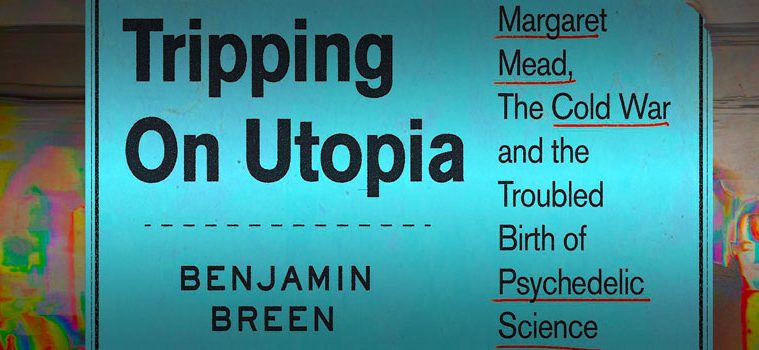LUCY IN THE SKY WITH DIAMONDS –
Jan. 22, 2024 – “Timothy Leary and the Baby Boomers did not usher in the first psychedelic era,” Benjamin Breen writes in a new book. “They ended it.” One evening in September of 1957, viewers across America could turn on their television sets and tune in to a CBS broadcast during which a young woman dropped acid.
She sat next to a man in a suit: Sidney Cohen, the researcher who had given her the LSD. The woman wore lipstick and nail polish, and her eyes were shining. “I wish I could talk in Technicolor,” she said. And, at another point, “I can see the molecules. I . . . I’m part of it. Can’t you see it?” “I’m trying,” Cohen replied.
Were some families maybe—oh, I don’t know—eating meat loaf on TV trays as they watched this nice lady undergo her mind-bending, molecule-revealing journey through inner space? Did they switch to “Father Knows Best” or “The Perry Como Show” afterward? One of the feats that the historian Benjamin Breen pulls off in his lively and engrossing new book, “Tripping on Utopia: Margaret Mead, the Cold War, and the Troubled Birth of Psychedelic Science” (Grand Central), is to make a cultural moment like the anonymous woman’s televised trip seem less incongruous, if no less fascinating.
In Breen’s telling, the buttoned-down nineteen-fifties, not the freewheeling nineteen-sixties, brought together the ingredients, some of them toxic, for the first large-scale cultural experiment with consciousness-expanding substances. The psychedelic flowering of the sixties has, it turns out, a prequel—a rich and partly forgotten chapter before the hippie movement, before the shamanistic preening and posturing of Timothy Leary, and before the war on drugs shut all that down. This earlier history encompasses not only the now notorious C.I.A. research into mind-altering drugs but also a lighter, brighter, more public dimension of better living through chemistry, buoyed by postwar scientific optimism and public reverence for expertise. “Timothy Leary and the Baby Boomers did not usher in the first psychedelic era,” Breen writes. “They ended it.”



